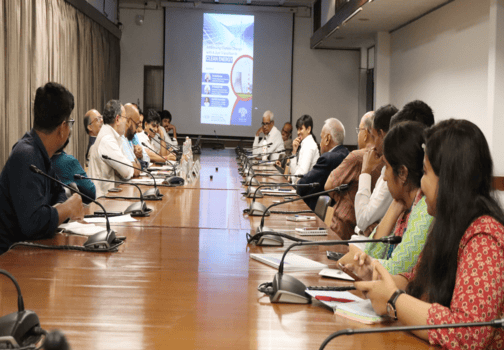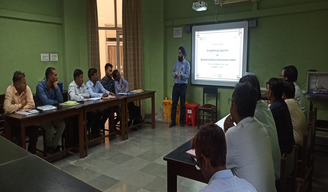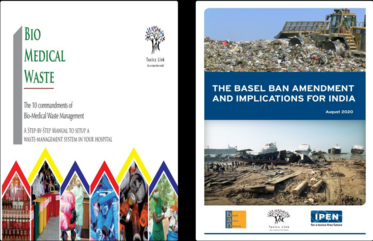STEPS TAKEN TO PREVENT FOOD ADULTERATION
GOVERNMENT OF INDIA
MINISTRY OF HEALTH AND FAMILY WELFARE
DEPARTMENT OF HEALTH AND FAMILY WELFARE
RAJYA SABHA
UNSTARRED QUESTION NO. 2032#
TO BE ANSWERED ON 18TH MARCH, 2025
STEPS TAKEN TO PREVENT FOOD ADULTERATION
2032# SHRI SUBHASH BARALA:
SHRI BABURAM NISHAD:
Will the Minister of HEALTH AND FAMILYWELFARE be pleased to state:
(a) the steps taken to strengthen strict enforcement against food adulteration, especially against the repeat offenders;
(b) the mechanisms in place to prevent operation of unregistered and unlicensed food businesses and selling of adulterated food products;
(c) the steps taken to ensure uniformity in the implementation of food safety enforcement across the States;
(d) whether Government is planning to further simplify or digitise the food business registration process so that more businesses can obtain licences and adhere to safety norms; and
(e) if so, the details thereof?
ANSWER
THE MINISTER OF STATE IN THE MINISTRY OF HEALTH AND FAMILY WELFARE
(SHRI PRATAPRAO JADHAV)
(a): Food Safety and Standards Authority of India (FSSAI) through its regional offices and State/ Union Territories conducts surveillance, monitoring, inspection, and random sampling of food products. In cases where food samples are found to be non- conforming, penal action is taken against the defaulting Food Business Operators as per the provisions of the Food Safety and Standards (FSS) Act, Rules and Regulations. Further, Section 64 of the FSS Act,2006 specifies following provisions for punishment for repeat offenders:
i. Twice the punishment, which might have been imposed on a first conviction, subject to the punishment being maximum provided for the same offense
ii. a further fine on daily basis which may extend up to one lakh rupees, where the offense is a continuing one; and cancellation of License/ Registration.
(b): The Food businesses are required to obtain license or registration certificate before commencing any food business, based on their production capacity & annual turnover. Food Safety Department of the States & UTs organizes Licensing and Registration camps to bring the Food Businesses under the regulatory framework and ensure compliance with FSS Act, 2006.
Additionally, FSSAI has also empowered consumers by providing a digital grievance redressal mechanism through the ‘Food Safety Connect’ mobile application. This platform allows consumers to report any unlicensed or unregistered food businesses they come across along with the issues of food safety violations. If any food business is found operating without holding a license, penal action are carried out under Section 63 of the FSS Act, 2006.
(c): FSS Act has been enacted in 2006 with the objective inter alia to repeal the erstwhile acts/legislation across the country & States/UTs and implement one uniform law for all the states/UTs to facilitate effective compliance by the industry and stringent regulatory actions. Further, in order to ensure uniformity in the implementation of harmonized and effective food safety enforcement mechanisms across all states, the Food Authority has undertaken the following key measures:
• Clear procedures on sampling, testing, and enforcement actions have been notified under FSS Act 2006, FSS Rules 2011 and Regulations, ensuring consistency in implementation across States/UTs by State Food Authorities and FSSAI through Regional Directors.
• Guidelines, advisories and directives related to risk based approach for conducting inspection and sampling are issued time to time to the Regional Directors of FSSAI and Commissioners of Food Safety of States/UTs to ensure uniformity in surveillance and enforcement, especially for high-risk food categories. Regular training programs are conducted for Food Safety Officers (FSOs), Designated Officers (DOs), and laboratory personnel to ensure standardized practices.
• Online platforms like the Food Safety Compliance System (FoSCoS) and the Indian Food Laboratory Network (INFoLNet) have been made operative to facilitate real-time monitoring and data sharing among enforcement authorities.
• Regular engagement are made with State Food Safety Commissioners through Central Advisory Committee meetings for reviewing the status of enforcement machinery and proper implementation of food safety measures. The Central Advisory Committee
ensures close cooperation between the Food Authority and the enforcement agencies and organisations operating in the field of food.
(d) & (e): In the year 2020, FSSAI has rolled out an advanced online system, namely, Food Safety Compliance System (FoSCoS), which is more user-friendly, enabling Food Businesses to seamlessly apply for licenses and registrations thereby eliminating the need for physical interactions and expediting the approval process. The other key steps whichhave been taken in order to enhance the ease of doing business for the FBOs are listed below:
• Launch of Instant (Tatkal) licensing provision to enable immediate issuance of licenses and registrations through digital verification for specific categories of food businesses without requiring the scrutiny/approval of the authority.
• To encourage ‘Hawkers’ for registration, FSSAI has implemented fee waiver for hawkers and grant them the registration certificate for five years.
• Facility for obtaining Instant Modification and renewal of Licenses and registrations
• Separate queue for Prioritizing the processing of license/registration applications of
Women and Transgender Entrepreneurs.






